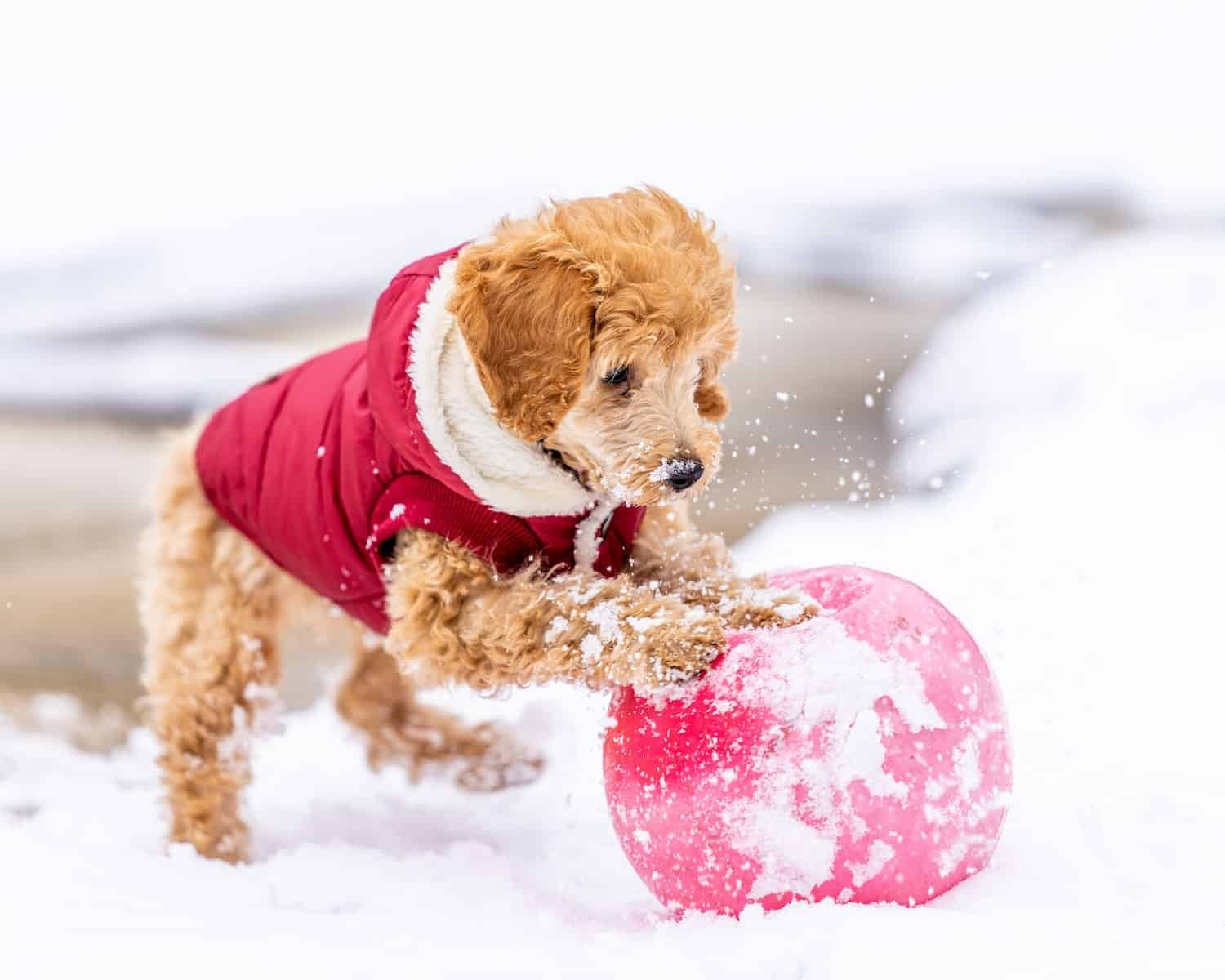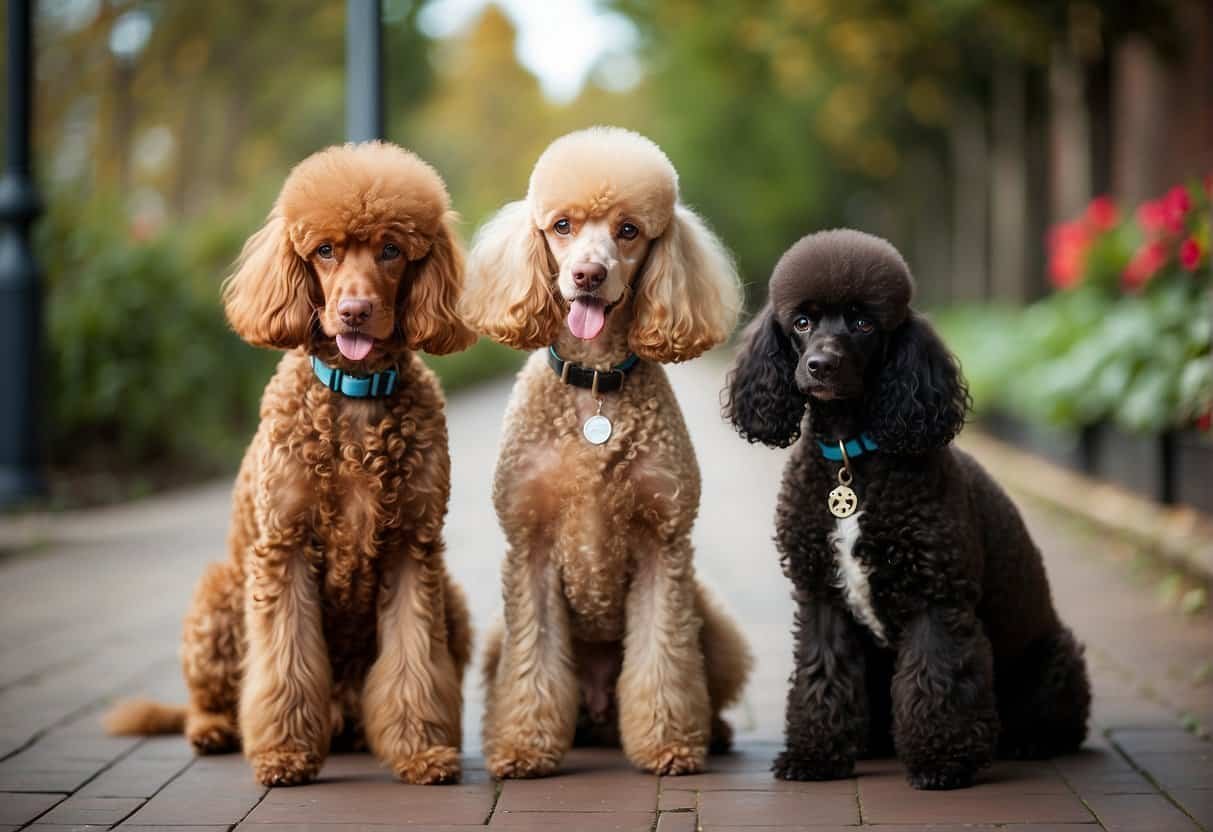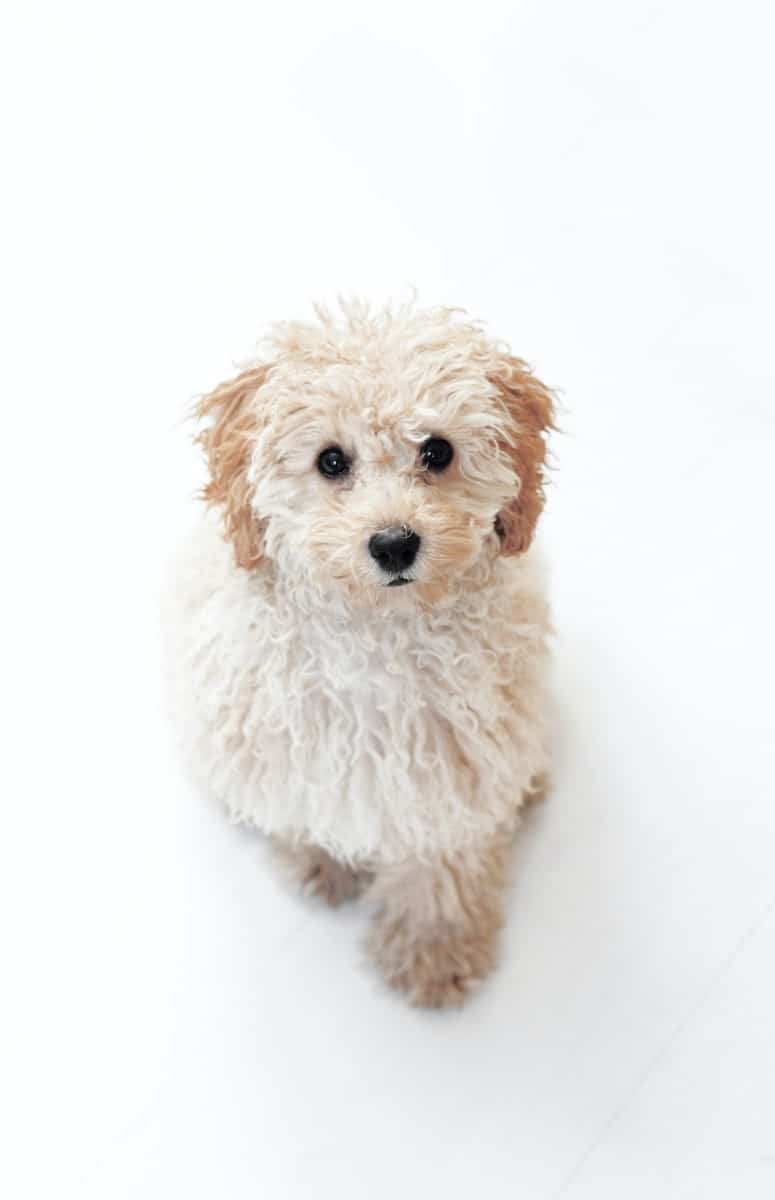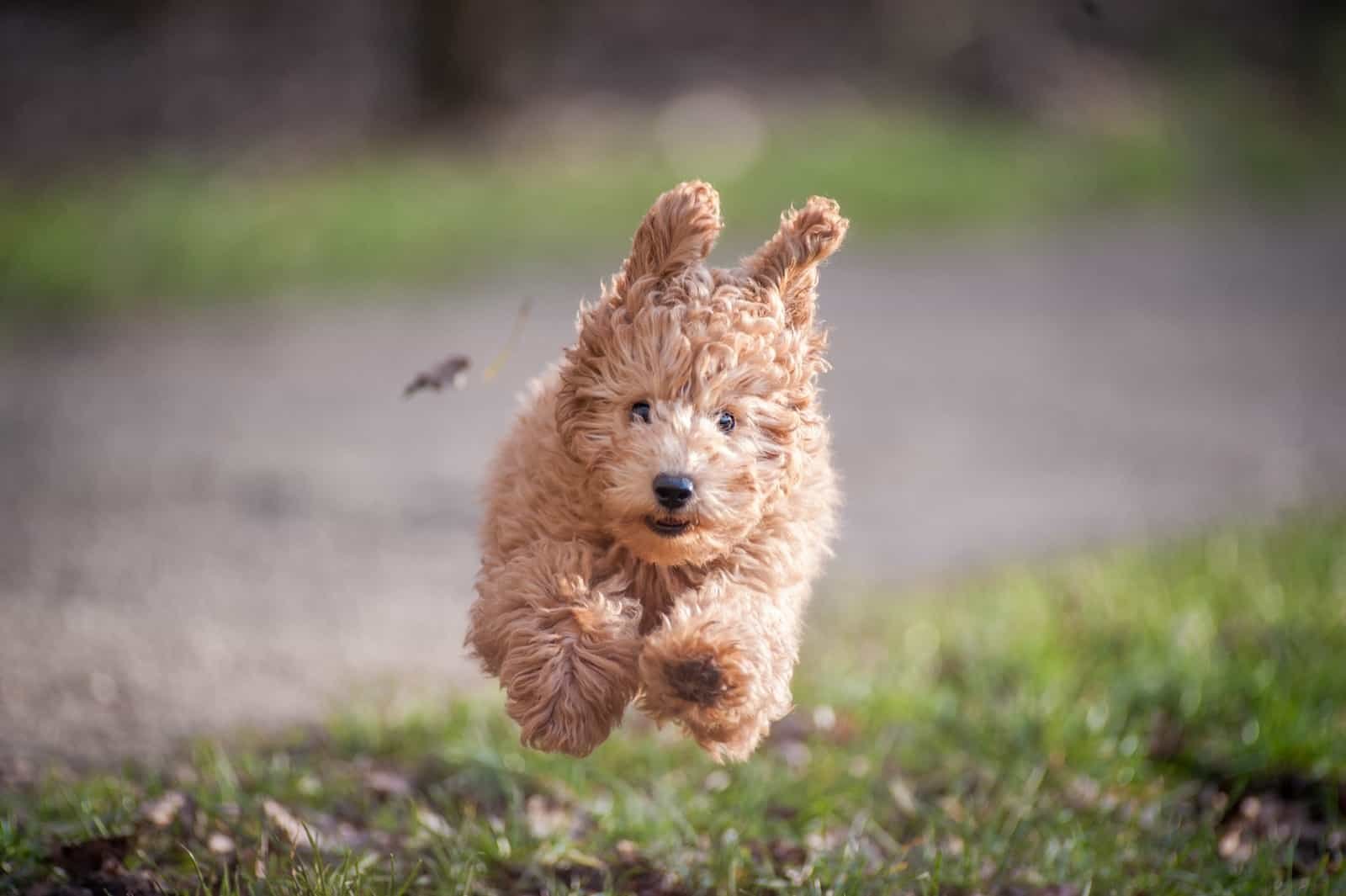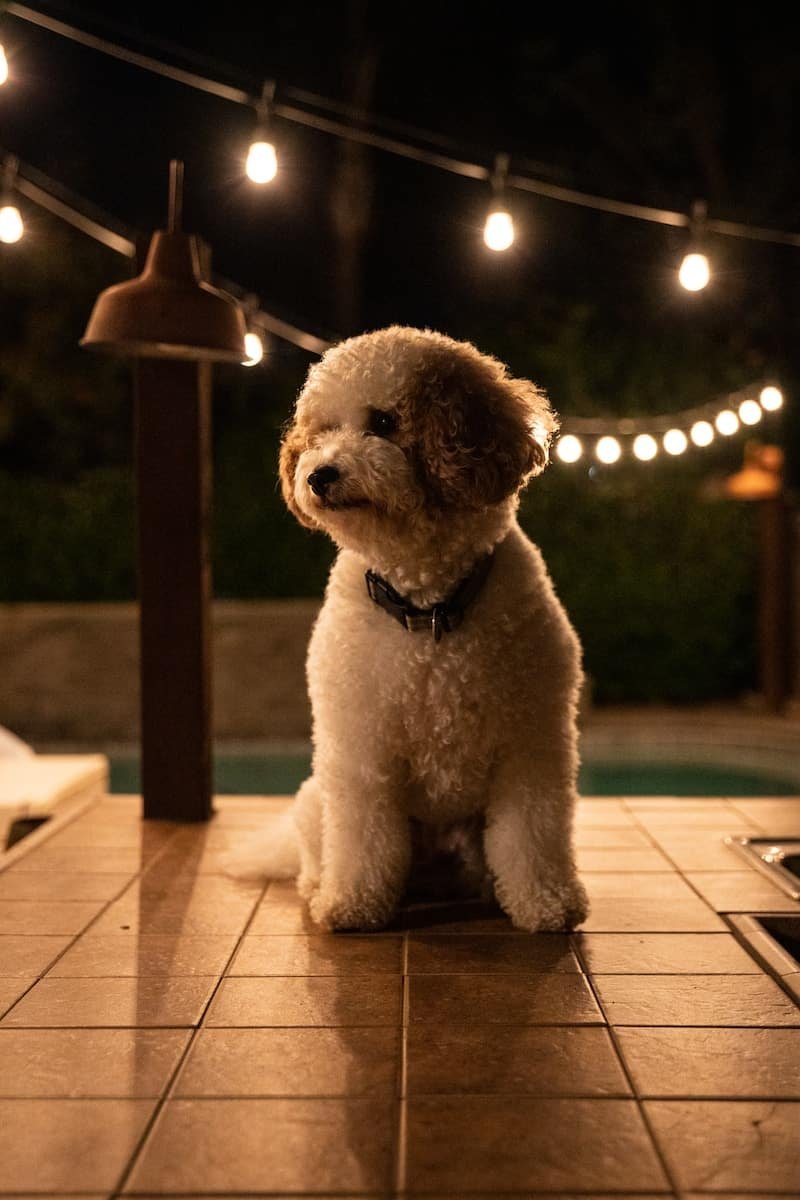
Are you looking for a loyal and intelligent pet? A poodle may be the perfect companion for you! Poodles are one of the most popular breeds of dogs due to their friendly nature, intelligence, and stylish looks. In this article, we will explore all there is to know about the dog poodle – from types and temperaments to health issues and care requirements. Come join us as we inspect this delightful breed!
About This Guide
- Real Experience: Written by poodle enthusiasts with years of hands-on experience caring for and training poodles.
- Expert Reviewed: Content verified by certified dog trainers and veterinary professionals.
- Fact-Checked: Information sourced from the AKC, veterinary journals, and breed specialists.
- Last Updated: November 2025
Overview of the Dog Poodle
The Poodle is a breed of dog originating from central Europe. This breed comes in three sizes – Standard, Miniature, and Toy – and has a curly coat that can be any color. The Poodle is well known for its intelligence, loyalty, and friendly nature. It is an excellent family pet due to its even temper and trainability.
Poodles are healthy dogs but require regular grooming to keep their coats looking their best. They also need plenty of physical activity as exercise, playtime, or activities such as swimming or agility training. With proper care and attention, the Poodle can make a wonderful companion for many years!
Types of Poodles
The Poodle is a versatile breed that comes in three distinct sizes: Standard, Miniature, and Toy. All three varieties of Poodles have the same curly coat of any color imaginable, which makes them unique among other breeds.
Standard Poodles are the largest of the three types, weighing up to 70 pounds and standing up to 24 inches at the shoulder. They are an ideal family pet for those with the space for a larger dog.
Miniature Poodles make great apartment pets as they only reach 10-15 inches in height and weigh around 15 pounds. They are active, but don’t require as much space as their larger counterparts.
Toy Poodles are even smaller than miniatures, growing to around 10 inches tall and weighing only 6 pounds. They can thrive in small spaces such as city apartments or condos and make lovely lapdogs.
No matter which size you choose, all Poodles need regular grooming to keep their coats looking their best and plenty of physical activity for mental stimulation. With proper care, a poodle can be a faithful companion for years to come!
Standard Poodles
Standard Poodles are the largest of all three types, standing up to 24 inches at the shoulder and weighing up to 70 pounds. They make an ideal family pet for those with enough space for a larger dog. Standard Poodles are very intelligent and active, so they require plenty of physical activity to keep them mentally stimulated. With proper care, these dogs can be loyal companions for years to come.
Grooming is essential for Standard Poodles as their curly coat requires regular maintenance. To keep their coats looking their best, they need daily brushing and occasional professional clipping or trimming. Regular baths are also necessary to keep their skin and coat healthy.
Due to their size, Standard Poodles need plenty of room to move around in order to stay fit and healthy. Whether it’s a large backyard or just taking them on long walks or hikes, giving them exercise is key in keeping your Standard happy and content.
Overall, Standard Poodles may take some extra effort when it comes to grooming and exercise, but they make wonderful pets that will remain faithful companions for many years!
Appearance
Standard Poodles are well known for their elegant and distinct appearance. They have a long and curly coat that can range in color from white, black, silver, brown, cream, apricot, blue, or gray. Standard Poodles have a strong and muscular build with an athletic stance that is often described as “noble.” Their facial features are quite unique, with a long muzzle and deep-set eyes of any shade. The ears hang close to the face and their tail is usually docked short.
Poodles of all sizes have a regal look about them, beautiful coats, and dignified bearing. Whether it’s the show ring or just playing around in your backyard, Standard Poodles will always turn heads with their stunning looks.
Temperament
Standard Poodles are known for their gentle and intelligent nature. They are highly trainable and have a natural affinity for learning both simple and complex tasks. With a good amount of patience and consistency, these dogs can learn to do just about anything. Standard Poodles also have an impressive ability to remember commands and will respond quickly when given the right instruction.
These dogs are highly social animals that love being around people. They make devoted companions who thrive on attention and affection from their owners. Standard Poodles get along well with children and other household pets, provided they receive proper socialization from puppyhood.
The breed is often described as alert and protective of its family, but not overly aggressive or territorial. Standard Poodles make great watchdogs, although they might bark if left alone for too long or not properly exercised.
Activity Level
Standard Poodles are active dogs that require plenty of exercise and mental stimulation daily. They have an abundance of energy and need to be kept busy in order to stay healthy and happy. A good daily walk or two is recommended for this breed, as well as some playtime in the backyard or at the dog park. While they are not necessarily a one-person dog, Standard Poodles prefer activities with their owners over those with other people.
These dogs also enjoy activities like agility, fly ball, obedience trials, tracking and advanced trick training. Given their high intelligence level, they can learn complicated tasks quickly and will excel in any activity you give them. That said, it’s important to keep sessions short and fun so your pup doesn’t get bored or frustrated.
Besides physical activity, it’s important to provide your Standard Poodle with regular mental stimulation. This could include teaching them new tricks, hiding treats for them to find or providing puzzle toys filled with kibble or treats. With proper exercise and mental stimulation, Standard Poodles will make wonderful companions for many years to come!
Health Issues
Standard Poodles are a healthy breed, although like all dogs, they can be prone to certain ailments. Common health issues in this breed include hip dysplasia, eye problems such as cataracts and progressive retinal atrophy, and skin allergies. In addition, Standard Poodles may also suffer from epilepsy and Addison’s disease. It’s important to get regular check-ups with your vet in order to keep your pup healthy and catch any potential issues early on.
It’s also important to feed your Standard Poodle a high-quality diet and make sure they get plenty of exercise. Grooming is another essential part of keeping them healthy; it should be done regularly to prevent matting and ensure their coat stays healthy. It’s a good idea to keep up with vaccinations in order to protect them from common illnesses.
Miniature Poodles
Miniature Poodles are an active, intelligent breed that makes great family pets. Though they may be small, they have big personalities that will keep you entertained for hours. They love playing games and going on walks and hikes with their owners, so they need plenty of exercise to stay healthy.
Miniature Poodles are a healthy breed, but they can sometimes suffer from genetic diseases such as eye problems or hip dysplasia. It’s important to get regular check-ups with your vet in order to catch any potential issues early on. A high-quality diet, proper exercise, and regular grooming are all essential for keeping them healthy and happy. Keeping up with their vaccinations is also important in order to protect them from common illnesses.
Miniature Poodles are an affectionate breed that loves being around people and getting lots of attention from their owners. With the right care and attention, this breed can be a wonderful addition to any family!
Appearance
Miniature Poodles are a small breed with a distinctive look. They have an elegant, wavy coat in shades of white, cream, apricot, red, or black. They have a long muzzle and floppy ears that hang down. Miniature Poodles also have webbed feet, making them excellent swimmers.
Their coats need to be brushed daily to prevent mats and tangles from forming. Trimming and clipping can help maintain their signature look while keeping their fur neat and tidy. Regular grooming also helps keep their skin healthy and free of parasites like fleas and ticks.
Miniature Poodles typically weigh between 15-17 pounds when fully grown and stand 10-15 inches high at the shoulder. This makes them small enough to fit in apartments or on boats but big enough to cuddle up with you during movie night!
Temperament
The miniature poodle is an intelligent, energetic breed that loves to play and learn. They are friendly and sociable with both people and other animals, making them great family pets. Despite their small size, they have a loud bark that can alert owners of potential danger.
Miniature Poodles are also very affectionate and loyal companions. They love spending time with their owners and will happily snuggle up for cuddles or go for long walks in the park. They are always eager to please and respond well to positive reinforcement training methods.
Miniature Poodles are highly adaptable and thrive in many living environments as long as they get enough exercise and mental stimulation. With proper care and attention, Miniature Poodles can live up to 15 years or more.
Activity Level
Miniature Poodles are active and energetic dogs that require plenty of exercise and mental stimulation. They love to go for daily walks, play fetch or tug-of-war, and explore their environment. Miniature Poodles also need plenty of socialization with other people, animals, and different environments to stay happy and confident.
Regular exercise is important for this breed as it helps keep them healthy and fit. Taking them to the dog park or doggie daycare can provide physical exercise and social opportunities. For owners who don’t have the time or ability to take their poodle for daily walks, a backyard agility course may be an excellent option to help keep their activity levels up.
In addition, providing your miniature poodle with interactive toys, such as puzzle feeders or chew toys, can help keep them entertained for hours on end. Training activities such as obedience classes or tricks can also be great ways to give your pup the mental stimulation they need.
Overall, the miniature poodle is an ideal pet for an active family or individual who enjoys spending quality time with their furry companion while providing them with adequate exercise and enrichment activities.
Health Issues
Miniature Poodles are healthy dogs, but they can be prone to certain health issues. Common health problems in this breed include hip dysplasia, eye disorders, and patellar luxation. It is important to purchase a Miniature Poodle from a reputable breeder who can provide proof of good health tests for the parents.
This breed is also at risk for Addison’s disease, which is an endocrine disorder that affects the adrenal glands. Symptoms of this condition include vomiting, diarrhea, weight loss, and weakness. If left untreated, it can be fatal. Fortunately, a simple test can detect Addison’s disease early on and treatment is available to manage the condition.
Regular veterinary check-ups are essential to ensure that any potential health issues are caught and treated quickly. Providing your Miniature Poodle with a healthy diet and plenty of exercise will help keep them in optimal shape and reduce their risk of developing certain diseases or conditions.
Toy Poodles Appearance Temperament Activity Level Health Issues
Toy Poodles are a small and active breed of dog. They have a unique appearance, with a curly coat, long legs, and an alert expression. Toy Poodles come in many colors, including white, black, gray, apricot, and brown.
This breed is known for being intelligent and eager to please. Toy Poodles are loyal companions who thrive on attention from their owners. They have an outgoing personality that makes them great family pets and excellent show dogs.
Toy Poodles are energetic and require daily exercise to stay healthy and happy. This includes regular walks or play sessions with their owners. Plenty of mental stimulation is necessary to keep them entertained throughout the day.
Toy Poodles are healthy dogs but they can be prone to certain health issues such as hip dysplasia, eye disorders, patellar luxation, and Addison’s disease. To reduce their risk of developing these problems, it is important to provide your pup with a good diet and plenty of exercise and regular veterinary check-ups.
Kennel Club Recognition American Kennel Club Recognition United Kennel Club Recognition
The American Kennel Club (AKC) and the United Kennel Club (UKC) are two of the most prestigious organizations for dog breeders. Both organizations provide recognition to different breeds of dogs, including the Toy Poodle.
The AKC recognizes the Toy Poodle as a member of the Non-Sporting Group. This group includes small to medium-sized breeds that are not used for herding or sporting activities. The AKC also holds competitions specifically for Toy Poodles, such as obedience trials and conformation shows.
The UKC recognizes the Toy Poodle as part of its Companion Dog Group. This group comprises dogs that are bred mainly for companionship and showmanship. The UKC holds their own conformation events and obedience trials, but they do not have a specific event just for this breed.
Both organizations have strict standards that must be met in order to be recognized as an official breed. Dogs must meet certain criteria on health, temperament, structure, and other factors before being accepted into either organization’s registry. In addition, each organization has their own rules and regulations regarding breeding practices and care requirements for registered dogs.
Care and Grooming Requirements Diet and Nutrition Exercise Requirements Potty Training Brushing and Grooming
Care and Grooming Requirements: Toy Poodles require frequent grooming and brushing. Their coat is curly and it must be brushed regularly to prevent tangles and matting. They should also be clipped every four to six weeks to keep their coats looking neat. In addition, they should have their nails trimmed regularly and their ears cleaned once a week to prevent ear infections.
Diet and Nutrition: Toy Poodles need a high-quality, balanced diet that includes proteins, carbohydrates, fats, vitamins, minerals, and other nutrients. As with all small breeds, they are prone to obesity, so it’s important that food portions are kept under control.
Exercise Requirements: Despite their small size, Toy Poodles need regular exercise in order to stay healthy. A daily walk or playtime in the yard will help keep them fit while providing mental stimulation as well.
Potty Training: Potty training is usually easy for Toy Poodles since they can be house trained relatively quickly compared to other breeds of dogs. With patience and consistency, you should have your pup potty trained in no time!
Brushing and Grooming: Brushing your Toy Poodle’s coat regularly will help keep it looking sleek and shiny. It’s also important to bathe them every few weeks with a mild shampoo designed specifically for dogs in order to keep their skin healthy.
Potential Health Concerns Hip Dysplasia Allergies and Skin Conditions
Potential Health Concerns: Toy Poodles, like all small breeds of dogs, can experience a range of health issues. Some of the most common concerns include hip dysplasia, allergies, and skin conditions.
Hip Dysplasia: This is a genetic disease that affects the hip joints and is common in Toy Poodles. It can cause pain and lameness and should be monitored by a vet to ensure it’s not becoming a problem.
Allergies and Skin Conditions: Toy Poodles are prone to allergies, which can manifest as itchy skin or excessive scratching. This should be treated with an anti-allergy medication prescribed by the vet. In addition, they are also prone to skin conditions such as mange or dermatitis, which requires special treatments from the vet in order to keep them under control.
Overall, Toy Poodles may need more frequent visits to the vet than larger breeds due to their size and potential for health issues. However, with proper care and nutrition, they make wonderful family pets that bring joy for many years!
Popularity as a Family Pet
Toy Poodles are a popular breed of small to medium-sized dogs known for their intelligence and friendly personalities. They make excellent family pets, as they love interacting with people, playing games, and learning tricks. Toy Poodles have low exercise needs, meaning they can fit into any lifestyle, whether it’s an active one or more laid back. They adapt well to indoor living and enjoy being part of the family.
The Toy Poodle’s size and affectionate nature also make them great around children. They get along well with other animals too, so if you have other pets in your home, they should get along just fine. As with any breed, proper socialization is important for them to be comfortable around new people and animals.
Toy Poodles require regular grooming in order to keep their coats healthy and tangle-free. This includes regular brushing, baths, haircuts and trims as needed. With a little patience and dedication, they will look their best!
Overall, Toy Poodles are a great choice for anyone looking for a loyal companion that will add life to their home. With plenty of love and attention, they can become wonderful members of the family that bring lots of joy!
Conclusion
In conclusion, Toy Poodles are a great choice for anyone looking for an affectionate and loyal companion. They require minimal exercise and grooming, making them a great fit for any lifestyle. With proper socialization, they will be comfortable around new people and animals, and get along with other pets in the home. As long as they have lots of love and attention, these little dogs can become wonderful members of the family that bring joy to everyone!

